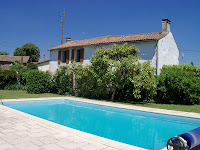
There is no longer any French inheritance tax between spouses or couples who have a French civil partnership agreement. However, a live-in partner, without a French civil partnership agreement is effectively treated as a stranger and has an allowance of only €1500. Anything he or she inherits after that will then be taxed at a rate of 60% – ouch! Such a tax bill may well mean having to sell the property to clear the debt!
Some partners could of course get married and solve most of their French tax problems but most people do not wish to make a decision to get married purely for tax reasons and this option is not available to same-sex partners. What else can be done to mitigate heavy taxes?
Civil partnership agreements
Since 15th November 1999, couples, either heterosexual or same-sex, who want to live together and share their lives may make a pacte civil de solidarité (PACS) which has legal recognition in France. This is in fact a contract by which the couple declare that they are sharing their lives and that they wish to register the fact and have their relationship made subject to the 1999 law. However, at the moment this option is only available to those who are either French or resident in France.
SCI tontinière – a French property-owning company with a twist
Another rather neat solution, available to residents and non-residents, heterosexual and same-sex partners, is to set up a particular type of company known as a Société Civil Immobilière (SCI) Tontinière. An SCI is a French property-owning company suitable for small numbers of people or family groups, set up to manage and/or let property. It is possible to have a special form of this company whereby the shares are held ‘en tontine’. Shares held in this way cannot be said to belong to either of the owners. It is as if both partners are holding the property on trust until the other dies. At this point the survivor is said to own all of the shares retrospectively (from the date of purchase) and the deceased is considered never to have had any rights as far as ownership of the shares is concerned.
The real advantage of this is that because the transfer of shares to the survivor is not considered an inheritance but instead is treated in the same way as a sale of shares, then the rate of tax paid is only 5%, as with any transfer of shares. For an unmarried partner, this represents an enormous saving on the usual rate of inheritance tax for ‘strangers’ of 60%. Not only that, the rights of the deceased’s reserved heirs, ie children, are effectively eliminated with regard to the assets of the SCI.
Previously, there were disadvantages to this structure in the UK. This is because the Inland Revenue would treat the shareholders as if they were directors receiving benefits in kind from the company. Thus the shareholders would be charged income tax on the deemed rental value of the property for all the time it was available to them during the year. Fortunately, provisions in the 2007 budget provide that this measure will be abolished from 2008 and apply retrospectively. Therefore anyone setting up an SCI now is unlikely to have any tax problems at home.
Are you eligible to use a tontine clause?
There are some provisos to the use of a tontine clause whether in a purchase contract or the statuts (articles of association) of an SCI. These are that the couple must contribute equally in financial terms to the purchase and that they must be of similar age. The reason for this latter proviso is that the people concerned must have the same life expectancy to have an equal chance of benefiting from the tontine clause eventually. The reason for the former is that if the contributions were not equal, there would be a disguised gift and hence an avoidance of tax. It might also be seen as a deliberate attempt to benefit the partner to the disadvantage of any reserved heirs, which may be considered an abuse of law in France, leading to the arrangement being treated as void.
with special thanks to Sue Busby of France Legal













